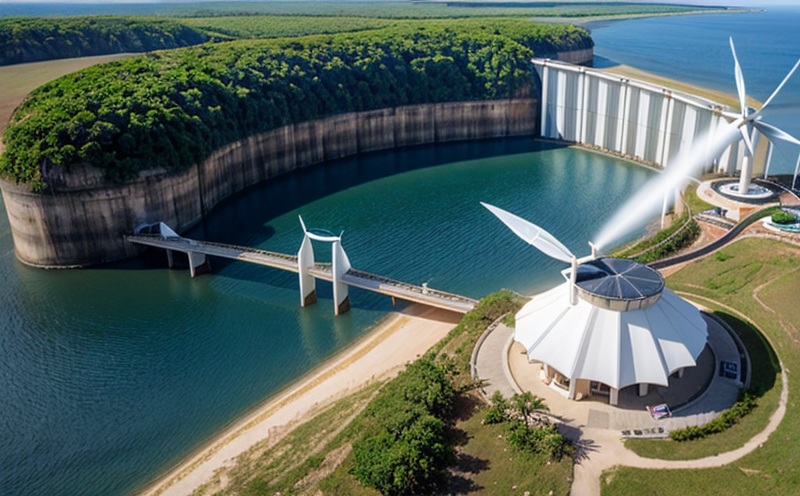Sustainable tourism and energy have become increasingly important topics in recent years as the world grapples with climate change, environmental degradation, and social inequality. The travel industry has a significant impact on the environment, and it is estimated that up to 8 of global greenhouse gas emissions can be attributed to tourist activities.
One of the main challenges facing the tourism industry is reducing its carbon footprint. This includes not only transportation but also accommodation, food, and activity choices made by tourists. Many tour operators and hotels are now focusing on sustainable practices such as using renewable energy sources, reducing water waste, and implementing recycling programs.
However, sustainability in tourism is not just about environmental concerns. It also encompasses social responsibility, including fair labor practices and support for local communities. Sustainable tourism should aim to benefit both the local economy and the environment, creating a positive impact on the destination visited.
Here are some ways sustainable tourism can be implemented:
Eco-friendly accommodations: Hotels and resorts that use renewable energy sources such as solar or wind power, reduce water consumption through efficient fixtures, and implement recycling programs.
Sustainable transportation: Tour operators that offer electric or hybrid vehicles for transfers, or encourage tourists to use public transport or walk/bike where possible. Some tour operators are also investing in carbon offsetting schemes.
Another crucial aspect of sustainable tourism is responsible travel behavior among visitors. This includes respecting local customs and traditions, not littering, and supporting local businesses. Travelers can make a significant impact by choosing tour operators that adhere to sustainable practices and being mindful of their own actions while traveling.
Sustainable energy production is also essential for reducing carbon emissions in the tourism industry. There are several renewable energy sources available, including:
Solar power: Using solar panels to generate electricity, either on-site or through off-grid systems.
Wind power: Harnessing wind energy using turbines to generate electricity.
Geothermal energy: Utilizing heat from the Earths core to provide heating and cooling.
These sustainable energy solutions can be applied in various settings, including hotels, resorts, and tour operators. For example:
Solar-powered resorts: Many beachfront resorts are now incorporating solar panels into their design, generating electricity and reducing reliance on fossil fuels.
Wind-powered hotels: Some eco-friendly hotels are investing in wind turbines to generate electricity, reducing carbon emissions and energy costs.
In addition to individual actions, governments and institutions can also play a significant role in promoting sustainable tourism. This includes:
Policy implementation: Governments can implement policies that encourage the development of sustainable tourism practices, such as tax incentives for eco-friendly accommodations.
Funding initiatives: Institutions can provide funding for projects that promote sustainable tourism, such as reforestation programs or community-based conservation efforts.
QA Section:
Q: What is the main challenge facing the tourism industry in terms of sustainability?
A: The main challenge facing the tourism industry is reducing its carbon footprint. This includes not only transportation but also accommodation, food, and activity choices made by tourists.
Q: How can tour operators contribute to sustainable tourism practices?
A: Tour operators can contribute to sustainable tourism practices by offering eco-friendly accommodations, implementing recycling programs, and encouraging tourists to use public transport or walk/bike where possible. They can also invest in carbon offsetting schemes.
Q: What are some examples of sustainable energy sources used in the tourism industry?
A: Some examples of sustainable energy sources used in the tourism industry include solar power, wind power, and geothermal energy. These can be applied in various settings, including hotels, resorts, and tour operators.
Q: How can travelers contribute to sustainable tourism practices?
A: Travelers can make a significant impact by choosing tour operators that adhere to sustainable practices and being mindful of their own actions while traveling. This includes respecting local customs and traditions, not littering, and supporting local businesses.
Q: What role do governments play in promoting sustainable tourism?
A: Governments can implement policies that encourage the development of sustainable tourism practices, such as tax incentives for eco-friendly accommodations. Institutions can also provide funding for projects that promote sustainable tourism, such as reforestation programs or community-based conservation efforts.
Q: How can individuals make a difference in promoting sustainable tourism?
A: Individuals can make a difference by supporting tour operators and businesses that adhere to sustainable practices, choosing sustainable energy sources, and being mindful of their own actions while traveling. They can also participate in local community initiatives or volunteer for projects that promote environmental conservation.
Q: What are some benefits of sustainable tourism practices?
A: Some benefits of sustainable tourism practices include reduced carbon emissions, support for local communities, and preservation of natural resources. Sustainable tourism also creates opportunities for economic growth and job creation.
Q: How can businesses measure the impact of their sustainability efforts?
A: Businesses can measure the impact of their sustainability efforts by tracking metrics such as energy consumption, water usage, waste reduction, and carbon emissions. They can also conduct surveys or gather feedback from customers to assess the effectiveness of their sustainable practices.
Q: What are some common misconceptions about sustainable tourism?
A: Some common misconceptions about sustainable tourism include that it is expensive, that it limits travel options, or that it is only focused on environmental concerns. In reality, sustainable tourism can be cost-effective, offers a wide range of choices for travelers, and encompasses both environmental and social responsibility.
Q: How can technology contribute to sustainable tourism practices?
A: Technology can contribute to sustainable tourism practices by providing tools and platforms for monitoring energy consumption, tracking carbon emissions, and promoting eco-friendly accommodations. It can also enable tourists to access information on local customs, traditions, and conservation efforts.

































